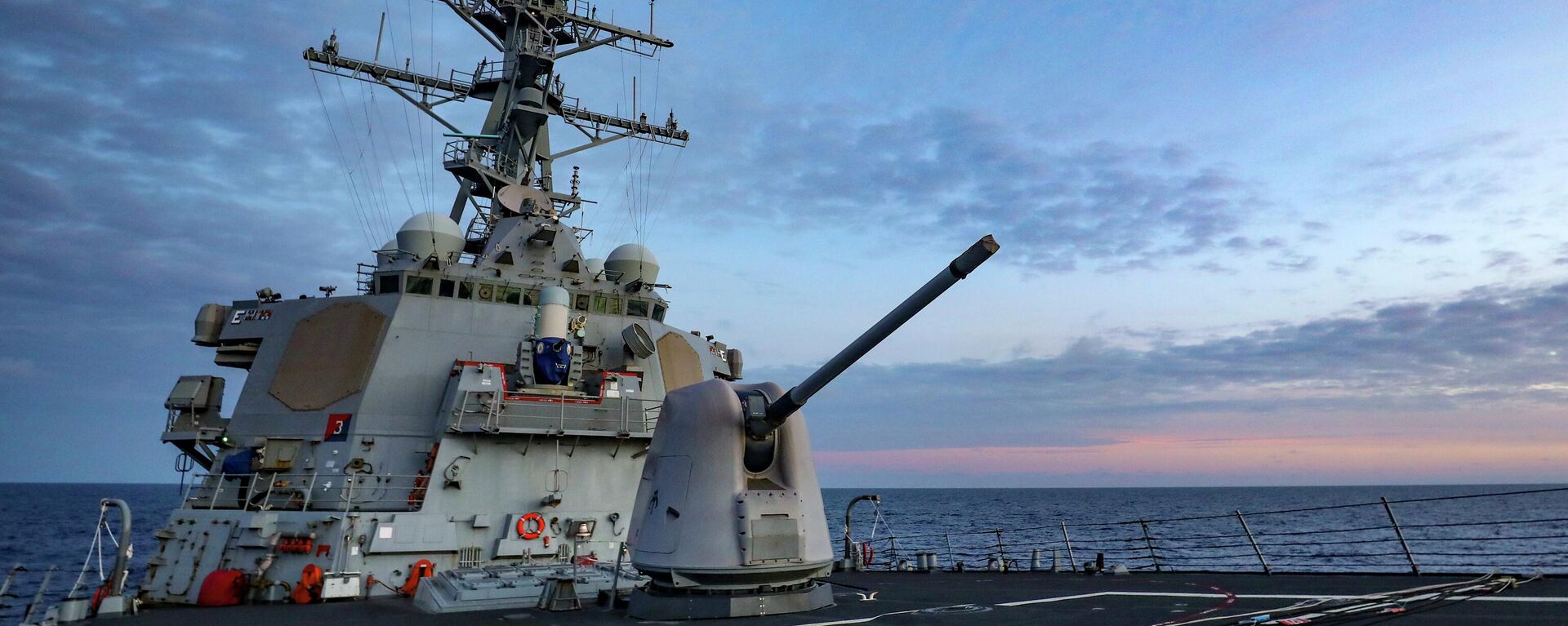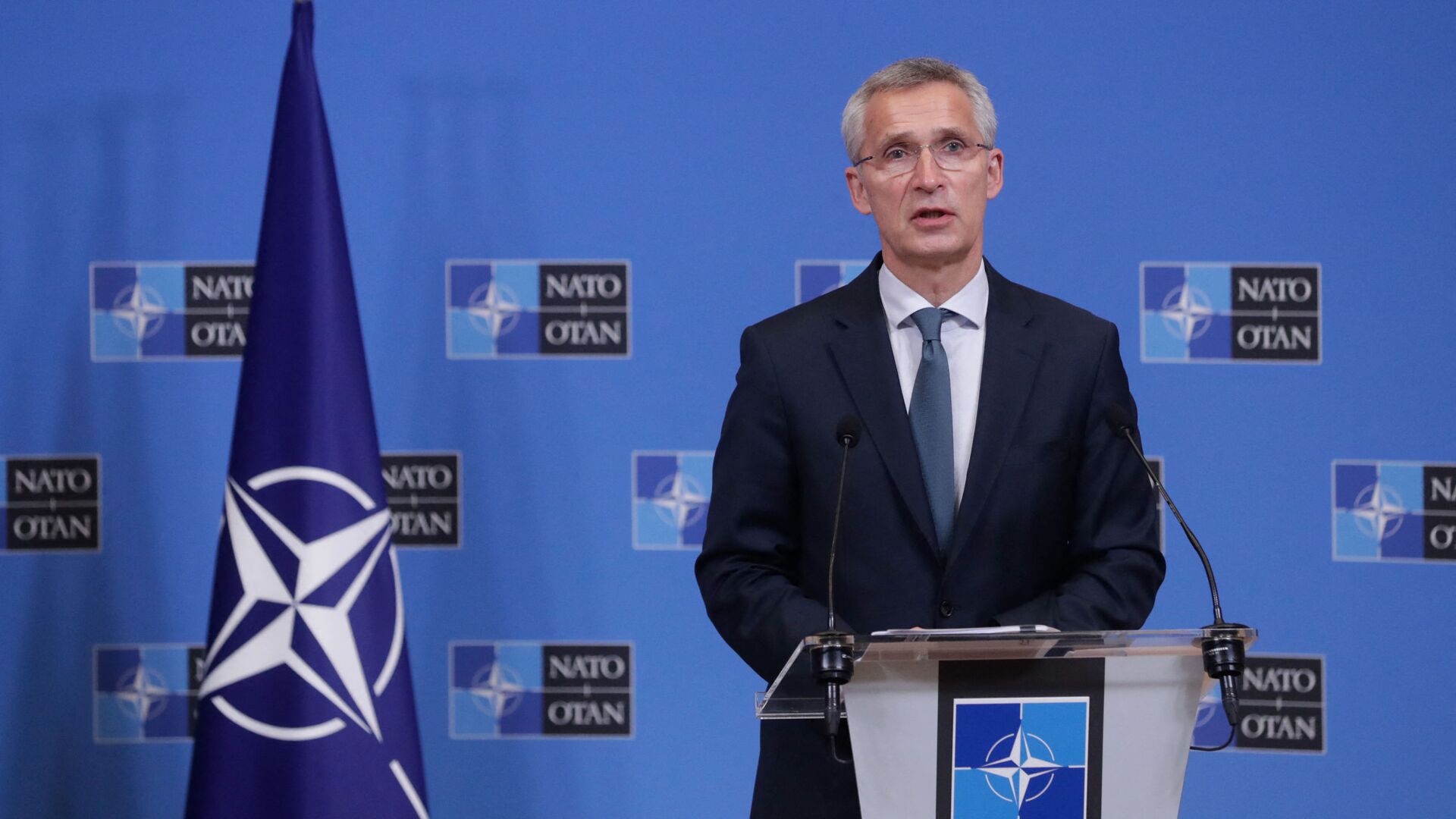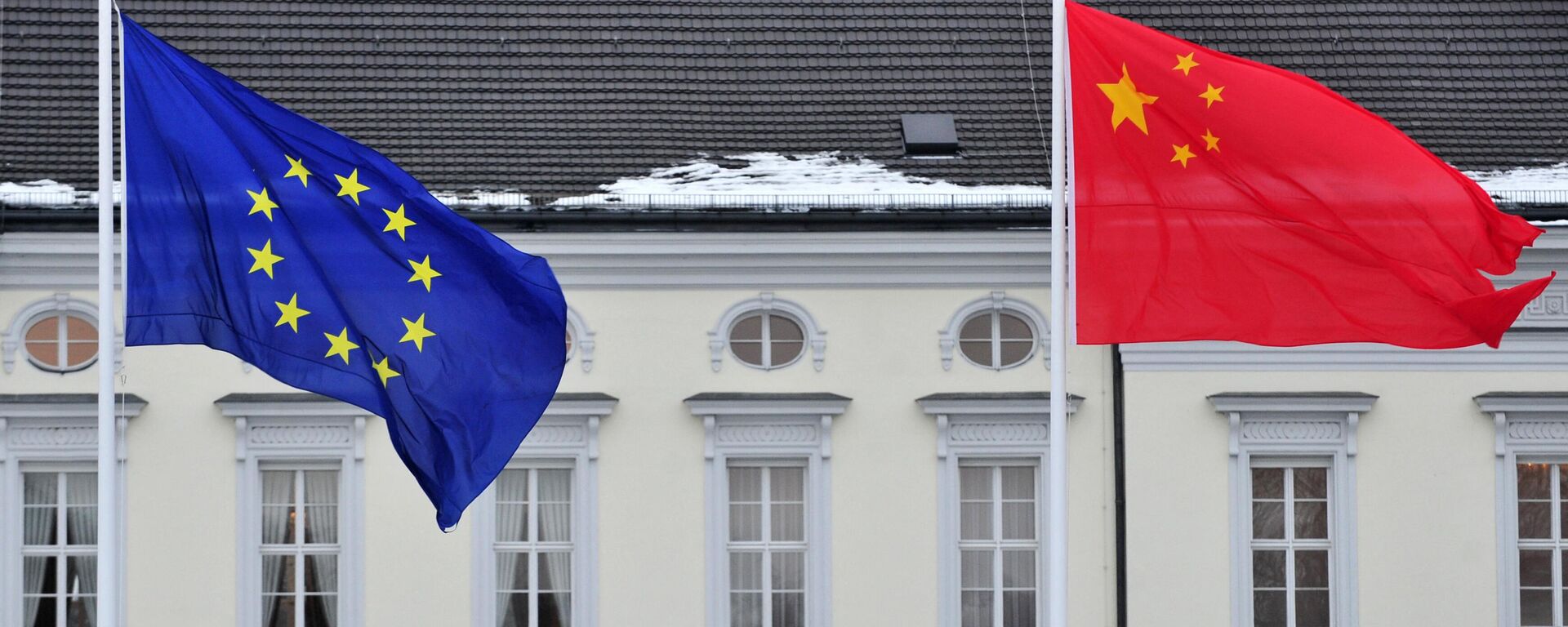https://sputnikglobe.com/20230925/nato-counters-china-with-1-billion-defense-start-up-venture-fund-1113649856.html
NATO Counters China With €1 Billion Defense Start-up Venture Fund
NATO Counters China With €1 Billion Defense Start-up Venture Fund
Sputnik International
As NATO moves forward with the integration of sophisticated technology, it acknowledges that maintaining a competitive edge necessitates significant investments, a paradigm shift, and increased collaboration among member states, to stave off competition from China.
2023-09-25T15:03+0000
2023-09-25T15:03+0000
2023-09-25T15:03+0000
military
jens stoltenberg
wang yi
nikolai patrushev
china
ukraine
nato
people's republic of china
european union (eu)
https://cdn1.img.sputnikglobe.com/img/07e5/06/04/1083075383_0:0:3072:1728_1920x0_80_0_0_3cadc9890427a5716149215890be91a3.jpg
The NATO Innovation Fund is set to earmark $1.1 billion for the advancement of defense start-ups, aiming to bolster their competitive edge against China. As reported by news sources, of the 31-member alliance, only 23 are actively involved in this initiative.In an assessment by NATO's Assistant Secretary General, David van Weel, the organization's inadequacy of venture capital for advancing deep tech solutions was highlighted, particularly within European countries. Van Weel affirmed NATO's resolve to increase capital infusion into defense companies to mitigate dependence on investors from the People's Republic of China.Since 2003, the Allied Command Transformation (ACT) has been working on incorporating technological advancements into NATO's operational plans. The 2010 NATO Strategic Concept highlighted the significance of technology. In contrast, the 2022 Strategic Concept emphasized technology for future actions and as a crucial component of the alliance’s core tenets for the next decade.In the 2022 Strategic Concept, NATO underscored its enduring commitment to prioritizing technological advancements. A notable shift was the heightened emphasis on emerging and disruptive technologies (EDTs).The groundwork for this approach was laid in 2021, when NATO defense ministers ratified a comprehensive EDT strategy to steer the alliance's policy framework in targeted spheres. While EDT policy has perennially held significance for NATO's objectives, the 2022 summit in Madrid firmly positioned new and emerging technologies at the vanguard of its strategic agenda.As the demands of the technology-security-defense landscape continue to surge, the alliance has marked a pivotal progression by inaugurating the Defense Innovation Accelerator for the North Atlantic (DIANA) and instituting the NATO Innovation Fund (NIF).According to sources, central to the DIANA initiative is the drive to prioritize technology within NATO's agenda. This endeavor involves more profound engagement with the commercial sector, leveraging venture capital funds, start-ups, and specialized technology firms.Additionally, DIANA is committed to nurturing the growth of fledgling start-ups into robust entities serving the defense market. The NIF is the globe's inaugural multi-sovereign fund. Its core objective is to entice and provide essential support for investments from allied nations, especially in policy spheres where extended time-to-market timelines and significant capital risks impede unassisted market delivery. However, there’s no reference to joint financing of weapons production for the alliance.In the venture capital landscape, deep tech is emerging as the second most promising European investment sector. Nevertheless, the continent significantly trails behind the United States, witnessing a conspicuous disparity in investment figures. The United States experienced a noteworthy influx of $166 billion in deep tech investment between 2020 and 2022, in contrast to Europe's relatively modest $52 billion. Even China, with an allocation of $34 billion, outpaced the collective investments of EU member states, which amounted to $30 billion.Deep tech start-ups can be defined as ventures whose business models are rooted in the convergence of research, scientific inquiry, innovative engineering, and a discernible societal influence.The DIANA and NIF initiatives, oriented towards bolstering coherence and safeguarding the alliance, are predicated on a deliberate emphasis on deep tech. Their twin goals revolve around driving technological advancement and ensuring its seamless assimilation. While NATO abstains from pinpointing any particular nation about Emerging and Disruptive Technologies (EDTs), the alliance's 2022 Strategic Concept prominently addresses China's aspirations to “control key technological and industrial sectors [and] create strategic dependencies.”Last week, at a meeting with Chinese Foreign Minister Wang Yi, Secretary of the Russian Security Council Nikolay Patrushev remarked on an orchestrated Western endeavor of dual containment of Russia and China. He argues that the unceasing expansion of the North Atlantic Alliance provides the United States with an avenue to integrate different states, potentially diminishing their sovereignty.He maintained that the United States, seeking to preserve its dominance, was extending its military infrastructure in the Asia-Pacific region, thus narrowing the geographical gap between itself and the borders of the Russian Federation and the People's Republic of China.
https://sputnikglobe.com/20230712/beijing-accuses-nato-of-discrediting-china-misrepresenting-its-policies-1111824942.html
https://sputnikglobe.com/20230815/us-plans-to-create-alliance-network-in-asia-pacific-region-to-deter-russia-china---russian-intel-1112615037.html
china
ukraine
Sputnik International
feedback@sputniknews.com
+74956456601
MIA „Rosiya Segodnya“
2023
Chimauchem Nwosu
https://cdn1.img.sputnikglobe.com/img/07e7/09/01/1113046371_0:99:1536:1635_100x100_80_0_0_9c5c627283eca931c39fe4852bbb301c.jpg
Chimauchem Nwosu
https://cdn1.img.sputnikglobe.com/img/07e7/09/01/1113046371_0:99:1536:1635_100x100_80_0_0_9c5c627283eca931c39fe4852bbb301c.jpg
News
en_EN
Sputnik International
feedback@sputniknews.com
+74956456601
MIA „Rosiya Segodnya“
Sputnik International
feedback@sputniknews.com
+74956456601
MIA „Rosiya Segodnya“
Chimauchem Nwosu
https://cdn1.img.sputnikglobe.com/img/07e7/09/01/1113046371_0:99:1536:1635_100x100_80_0_0_9c5c627283eca931c39fe4852bbb301c.jpg
nato innovation fund, defense startups, china, venture capital, deep-tech solutions, european countries, allied command transformation, technological advancements, nato strategic concept, emerging technologies, disruptive technologies, defence innovation accelerator for the north atlantic (diana), nato innovation fund (nif), multi-sovereign fund, joint financing, weapons production, deep tech investment, united states, ukraine conflict, jens stoltenberg, russia, chinese foreign minister wang yi, russian security council, dual containment, asia-pacific region.
nato innovation fund, defense startups, china, venture capital, deep-tech solutions, european countries, allied command transformation, technological advancements, nato strategic concept, emerging technologies, disruptive technologies, defence innovation accelerator for the north atlantic (diana), nato innovation fund (nif), multi-sovereign fund, joint financing, weapons production, deep tech investment, united states, ukraine conflict, jens stoltenberg, russia, chinese foreign minister wang yi, russian security council, dual containment, asia-pacific region.
NATO Counters China With €1 Billion Defense Start-up Venture Fund
As NATO moves forward with integration of sophisticated technology, it acknowledges that maintaining a competitive edge necessitates significant investments, a paradigm shift, and increased collaboration among member states, to stave off competition from China.
The NATO Innovation Fund is set to earmark $1.1 billion for the advancement of defense start-ups, aiming to bolster their competitive edge against China. As reported by news sources, of the 31-member alliance, only 23 are actively involved in this initiative.
In an assessment by NATO's Assistant Secretary General, David van Weel, the organization's inadequacy of venture capital for advancing deep tech solutions was highlighted, particularly within European countries. Van Weel affirmed NATO's resolve to increase capital infusion into defense companies to mitigate dependence on investors from the People's Republic of China.
Since 2003, the Allied Command Transformation (ACT) has been working on incorporating technological advancements into NATO's operational plans. The 2010 NATO Strategic Concept highlighted the significance of technology. In contrast, the 2022 Strategic Concept emphasized technology for future actions and as a crucial component of the alliance’s core tenets for the next decade.
In the 2022 Strategic Concept, NATO underscored its enduring commitment to prioritizing technological advancements. A notable shift was the heightened emphasis on emerging and disruptive technologies (EDTs).
The groundwork for this approach was laid in 2021, when NATO defense ministers ratified a comprehensive EDT strategy to steer the alliance's policy framework in targeted spheres. While EDT policy has perennially held significance for NATO's objectives, the 2022 summit in Madrid firmly positioned new and emerging technologies at the vanguard of its strategic agenda.
As the demands of the technology-security-defense landscape continue to surge, the alliance has marked a pivotal progression by inaugurating the Defense Innovation Accelerator for the North Atlantic (DIANA) and instituting the NATO Innovation Fund (NIF).
According to sources, central to the DIANA initiative is the drive to prioritize technology within NATO's agenda. This endeavor involves more profound engagement with the commercial sector, leveraging venture capital funds, start-ups, and specialized technology firms.
Additionally, DIANA is committed to nurturing the growth of fledgling start-ups into robust entities serving the defense market. The NIF is the globe's inaugural multi-sovereign fund. Its core objective is to entice and provide essential support for investments from allied nations, especially in policy spheres where extended time-to-market timelines and significant capital risks impede unassisted market delivery. However, there’s no reference to joint financing of weapons production for the alliance.
In the venture capital landscape, deep tech is emerging as the
second most promising European investment sector. Nevertheless, the continent significantly trails behind the United States, witnessing a conspicuous disparity in investment figures. The United States experienced a noteworthy influx of $166 billion in deep tech investment between 2020 and 2022, in contrast to Europe's relatively modest $52 billion. Even China, with an allocation of $34 billion, outpaced the collective investments of EU member states, which amounted to $30 billion.
Deep tech start-ups can be defined as ventures whose business models are rooted in the convergence of research, scientific inquiry, innovative engineering, and a discernible societal influence.
The DIANA and NIF initiatives, oriented towards bolstering coherence and safeguarding the alliance, are predicated on a deliberate emphasis on deep tech. Their twin goals revolve around driving technological advancement and ensuring its seamless assimilation. While NATO abstains from pinpointing any particular nation about Emerging and Disruptive Technologies (EDTs), the alliance's 2022 Strategic Concept prominently addresses China's aspirations to “control key technological and industrial sectors [and] create strategic dependencies.”

15 August 2023, 13:48 GMT
Last week, at a meeting with Chinese Foreign Minister Wang Yi, Secretary of the Russian Security Council Nikolay Patrushev remarked on an orchestrated Western endeavor of dual containment of Russia and China. He argues that the unceasing expansion of the North Atlantic Alliance provides the United States with an avenue to integrate different states, potentially diminishing their sovereignty.
He maintained that the United States, seeking to preserve its dominance, was extending its military infrastructure in the Asia-Pacific region, thus narrowing the geographical gap between itself and the borders of the Russian Federation and the People's Republic of China.







